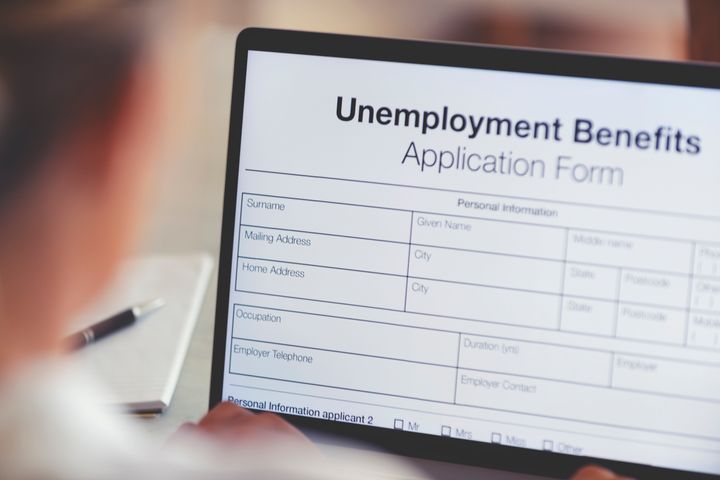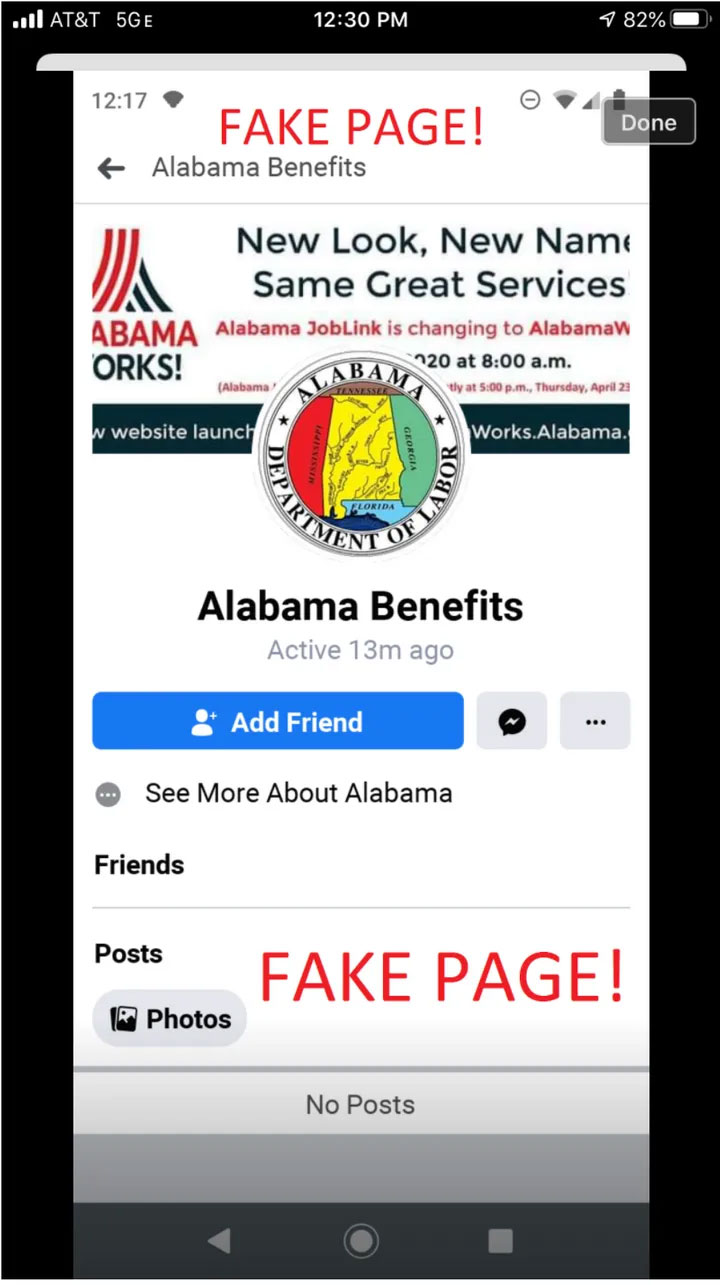
More than 40 million Americans have filed unemployment claims thus far during the coronavirus pandemic, and fraudsters are scamming their way into a number of those benefits.
People in multiple states have recently been targeted by fraudulent unemployment benefits schemes. On Thursday, officials in Washington state said it had recovered $300 million in unemployment benefits paid to criminals filing bogus claims. In Massachusetts, officials are adding new identity-verification steps after finding “large amounts of illegitimate unemployment claims,” resulting in delays in unemployment payments.
The Office of military officer at the U.S. Department of Labor said during a fraud alert that scammers have also offered to assist individuals file claims for unemployment benefits. “Unsolicited calls, social media platforms, and door-to-door visits are several ways in which individuals are targeted,” the alert states.
Don’t be fooled. be careful for these signs that your unemployment benefits communications aren’t legitimate:
1. There’s a fee when there should be no fee
As the Office of military officer for the Department of Labor notes, “You don’t got to pay anyone to file or qualify for your benefits.” you ought to file for free of charge through your state’s official unemployment insurance agency.
Don’t be swayed by people telling you otherwise.
2. You’re not on an actual government agency’s online portal
Beware of websites and social media pages that clone or mimic those of state agencies.
One such scam alleged to be the location of the Alabama Department of Labor, Secretary Fitzgerald Washington shared during a handout on recent fraud cases.

“We are conscious of a minimum of one Facebook page that cloned the official ADOL Facebook page then proceeded to contact those that had interacted with the legitimate page with bogus offers of prizes and requests to permit them to file for benefits on the claimant’s behalf,” said Washington.
If you would like to double-check that you simply are using the official platform of your state’s unemployment insurance agency, attend CareerOneStop, which is sponsored by the Department of Labor and compiles the acceptable links and phone contact information for every state’s unemployment benefits system.
3. you’re being asked to share sensitive information over text or emai
When you are filing for unemployment benefits, the state’s unemployment insurance agency will ask you to share personal information associated with your unemployment and your recent earnings.
“They will ask you for your Social Security number, your name, your address for the last 18 months, your employer’s name and address for the last 18 months, and every one of your earnings records from the last 18 months,” said Michele Evermore, a senior policy analyst for the National Employment Law Project who focuses on unemployment insurance.
Because of the recent nationwide scams, some state agencies can also reach bent verify your identity, Evermore said. “You got to answer that quickly and if possible, electronically, because it’s slower to process that verification if you send it in on paper,” she said.
But you ought to not be asked to share or verify this sensitive information over text or email ― it might happen through the state’s official portal for unemployment insurance. “It depends on the state, but they’re not getting to direct you to anything aside from the state UI website, or to mail your information to the state UI agency,” Evermore said.
“We won’t ask you for private information or for you to verify your eligibility for unemployment benefits by email or text message,” declares the Wisconsin Department of Workforce Development, for instance .
To affect long queues, some state unemployment insurance agencies will call applicants back by phone, but “it’s doubtful the agency would call you out of the blue. You’d know you’ve gotten in line for a callback,” Evermore noted.
When unsure about the authenticity of a communication, search your state’s official phone numbers and website for unemployment benefits and compare them to what you’ve got received.
If you are doing think you’ve got spotted an unemployment scam or know someone who has been scammed, you’ll report it to the Office of the military officer online or by calling the hotline below:











